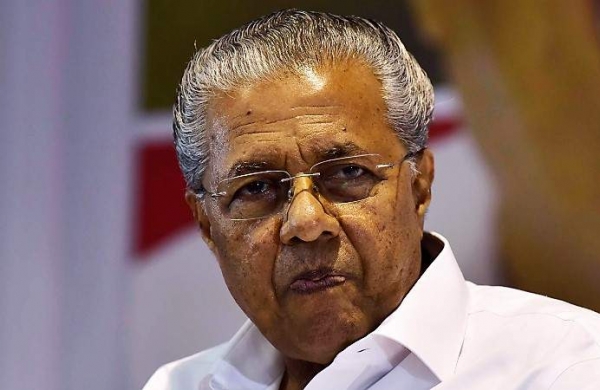Industries minister E.P. Jayarajan from Kannur was speculated to succeed Vijayan.
New Delhi: After leaving his stamp on governance in the past four-and-a-half years, Kerala Chief Minister Pinarayi Vijayan is out to prove his complete dominance over his party CPM in the state. In the process, Vijayan has made his party’s central leadership irrelevant in matters concerning Kerala. The list of CPM candidates for the Assembly elections scheduled on 6 April released this week is a pointer to this.
Contrary to the general belief within the party that Vijayan would prefer to go with the same team at a time when the political wind is blowing very much in CPM’s favour, the Marxist strongman’s decision to drop three heavyweight ministers hailing from two hotbeds of communism, Kannur and Alappuzha, was audacious and planned.
Among the three, Industries minister E.P. Jayarajan from Kannur, Number 2 in the Cabinet, was widely speculated to succeed Vijayan. This fact was underlined when “EP”, as the minister is known in party circles, was brought back after he was forced to quit over allegations of nepotism barely an year into Pinarayi’s term. He was the de facto chief minister whenever Vijayan went abroad for medical treatment. Finance Minister Thomas Isaac has been the comrade in arms in Vijayan’s fight against the Centre and is the brain behind the setting up of the now controversial Kerala Infrastructure Investment Fund Board (KIIFB), which, in Vijayan’s own admission, heralded the development process in the state. Ironically, after the latest showdown with the Enforcement Directorate, when Vijayan warned the Centre that “this is Kerala,” Isaac had predicted that “this move (ED summons to KIIFB officials) by the BJP and the ED could be the turning point in this election.”
PWD Minister K. Sudhakaran had expressed his desire to opt out of governance, but many thought that his continuance would only enhance the image of the ministry. Sudhakaran may have displeased many by his frank opinions, and some by his poems, but none can question his honesty and integrity. Other than health minister K.K. Shailaja, Sudhakaran was the one who got work out of “babus”, especially in a department known for its corruption such as the public works department.
Though Vijayan loyalists may point out to the rigorous implementation of new norms regarding terms for legislators and party functionaries set by the state CPM in 2016–a maximum of nine years in organisational posts and ten years in parliamentary duties–for the axing of five ministers and over thirty legislators, but it was mainly the bitter lessons learnt from 33 years of party’s “rusted” rule in Bengal that may have prompted the Chief Minister to take such a call.
On the face of it, both these assumptions look fine and practical. But the rules have been twisted to the convenience of Vijayan who himself will be completing his fifth term as an MLA. The argument is that his five terms were all staggered; he has never been a member of the Assembly for two consecutive terms. He hopes to fulfil this by returning to power and as chief minister, something which no other communist leader in the state has achieved. In fact, in the past 50 years, no incumbent government has been voted to power in the state.
The underlying factor is that Pinarayi Vijayan by his style of functioning has time and again shown that he prefers to be his own master, be it in matters of governance or decisions regarding the running of the party. It might have given a growing impression of authoritarianism and straying away from communist ideology by aiding crony capitalists in the name of development, but if the party accepts and the people vote for him, well and good.
If in 2016 Vijayan was accused of stealing the chief minister’s post from the very pocket of veteran V.S. Achuthanandan–for there are many who still believe that the Left Front would not have got such a majority had it not been for VS at the helm of the campaign–on 2 May, there will be none to challenge Vijayan’s credentials to the leadership. He is the only Politburo member of the CPM contesting this election. Health minister K.K. Shailaja, 64, a central committee member, is the senior-most after Vijayan who is 75.
In Kerala, it is a battle for survival for CPM. The party’s very existence depends on the outcome. There is not even the wildest chance to regain power in either West Bengal or Tripura in the near future. That is why Pinarayi Vijayan’s gamble with new faces in this election becomes all the more important. Except for sporadic protests and stray posters, there is no opposition worth mentioning from the party rank and file. Not from the Central Committee, not from Politburo. Pinarayi Vijayan loves to recall his younger days when he had to walk through drawn out naked swords and knives, a reference to rival RSS members out to kill him, unscathed. This election he is taking a calculated risk. If he emerges victorious, Pinarayi Vijayan will become the central leadership and his brand of communism the new norm of the CPM. There is no doubt Pinarayi Vijayan will soon, if not already, be calling the shots in AKG Bhavan in New Delhi.

